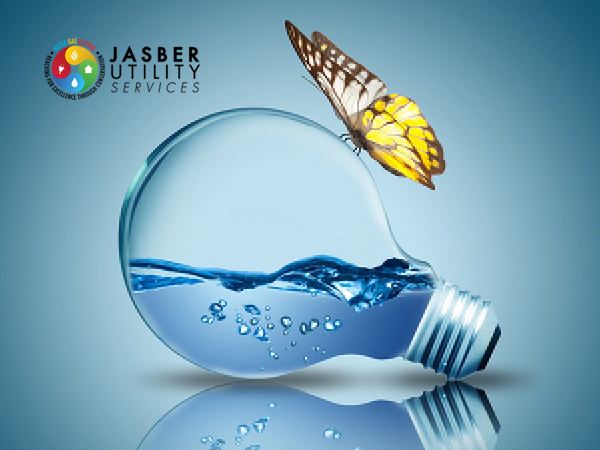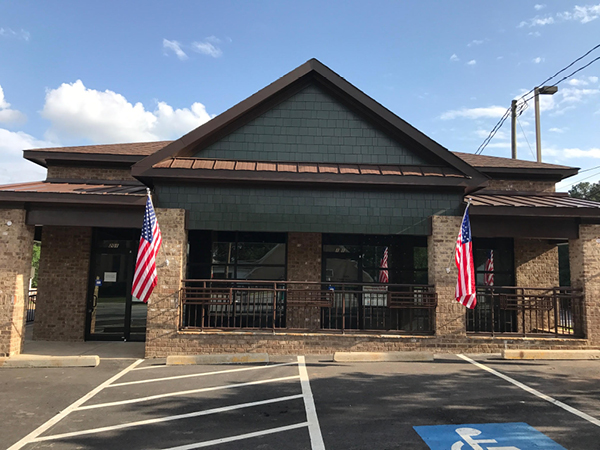Tips
Water is a precious resource in Georgia and its neighboring states. Growing populations and ongoing drought are squeezing our water resources dry, causing natural habitat degradation and impacting our everyday use of water. We have no choice but to pay more attention to how we are using water, and how we may be wasting it. We must bridge the gap between our understanding of how important water is to our survival and what we can do to ensure that we have an adequate supply of clean water for years to come. Below is a list of many simple ways we can take action and conserve water, both inside and outside our homes.
Checks for Leaks Annually
Homeowners typically only notice leaks when they’re dripping from a faucet or coming through a ceiling. Leaks underneath the house or in the basement are harder to diagnose. It’s a good idea to have an experienced plumber give your home’s pipes a once-over every year to reduce water consumption and prevent potentially expensive water damage.
- Repair dripping faucets by replacing washers. If your faucet is dripping at the rate of 1 drop per second, you can expect to waste 2,700 gallons per year.
- Verify that your home is leak free. Read your water meter before and after a 2-hour period when no water is being used. If the meter does not read exactly the same, there is a leak.
- Insulate your water pipes. You’ll get hot water faster and avoid wasting water.
TOP TEN TIP TO CONSERVE WATER FOR SPRING/SUMMER
- Check all outside hose and connections against leaks and winter’s ravages
- Planting your garden to start the season? Start off right. There are many beautiful groundcovers that require less watering including lavender, daylilies, forget-me-nots, aloes, marigolds, and zinnias.
- Avoid wasting water by installing a spring-loaded shutoff nozzle on each garden hose to avoid water waste.
- When sprinkling your grass and flower or vegetable beds, try to avoid watering the driveways and sidewalks.
- Water retention in your garden is enhanced by compost, not to mention a wealth of nutrients. Start a compost pile and add it to your garden. Mix in some along wood chips or peat moss and your water retention will be boosted.
- A slow-drip irrigation system will help avoid over-watering, and also save money on your water bill.
- Watering lawns and gardens at the most opportune times conserves our precious resource. Water generally evaporates most rapidly between 10 a.m. and 4 p.m. Restrict watering to before or after those times and you’ll likely use less.
- Most people overwater lawns. Keeping the length of your lawn approximately 2 inches long. This will help reduce evaporation and require less water.
- Cycle watering in areas where runoff occurs, especially on slopes or compacted dry soils.
- Hate raking? When you’re finished mowing, leave the grass clippings on the lawn. This will boost water retention and help grass grow thicker.
TIPS TO AVOID FREEZING PIPES IN THE WINTER
What causing your pipes to freeze… Water expands when it freezes. In pipes, the expansion can cause ruptures. The damage often occurs not at the point where a pipe has frozen, but between the freeze and a faucet. As the ice blocks the pipe completely and expands, the water pressure in the pipe increases. Too much pressure will rupture the pipe. Long Term Pipe Burst Prevention Tips
Many of the repairs and improvements you can make to minimize the risk of frozen pipes are basic energy-conservation practices.
- Locate and seal cracks and openings in the walls, attic, basement or crawlspace.
- Weather strip and caulk around crawlspace doors and basement windows.
- Make sure your home is properly insulated. Pay particular attention to areas where pipes are located.
- Insulate unprotected pipes and don’t leave any gaps in the insulation. Pipe sleeves simplify the process. Keep the pieces tight against each other and seal the slits and joints with duct tape.
- Install thermostat-controlled, ULlisted heat cables. Use cables that are appropriate for your pipe and follow the manufacturer’s instructions for installation. Some manufacturer’s recommend unplugging the cables at the end of the season.
- Install storm windows over basement windows or replace the old windows with energy-efficient alternatives. If you need help making improvements to prevent frozen pipes, contact a licensed builder or plumber. You may even be able to have the plumber move exposed pipes to areas that are less likely to freeze
Your water meter can be helpful when checking for leaks.
Do you suspect you have a leak? Your water meter attached to exterior of you unit will help your leak detection process.
Step 1: Carefully remove the cover and lift the top to access meter head
Step 2: Locate the Metal Pinwheel Leak Indicator on the meter dial
Step 3: Turn off all water sources to your unit or home and if the leak indicator is rotation on your meter dial, you probably have a leak
Step 4: for leak repairs in the interior of your unit, contact a LICENSED plumber whom specializes in leak detection. The Plumber should check for leaks and underground breaks in your service pipes.
FREQUENTLY ASKED QUESTIONS
When I have a high monthly bill due to a possible leak, whom is responsible for the repair cost?
A: The occupying resident is responsible for all outstanding balances on their account and all repair cost associated with repairing leaks.
Are you able to tell me if I have a leak in my home based on my monthly meter reading?
A: The average single family home accumulates on average between 3,000 to 5,000 gallons of water in a 30 day time span. Unfortunately, we are not able to inform you of a leak in the interior of you unit, we recommend that you have your property inspected by a licensed plumber whom specializes in leak detection.
What options are available to Jasber Utility Service Customers who are seeking leak detection solutions?
A: Option #1: Meter Accuracy Testing
With this option your meter is pulled and sent for accuracy testing to the manufacture “Master Meter”. If the calibration on the meter is incorrect, there will be a credit issued to your account, and a new meter installed.
Option # 2: Data Log (Per 30 day period)
A technician generates a data log from your meter per day by the hour so you can review your daily usage for a 30 day period
What forms of payment can I use to make a payment?
A: You can pay by credit or debit card or you may issue an electronic check from your bank account (checking or savings).
Learn more about our sub-metering services to communities. Reaching for Excellence Through Conservation.
Learn more about our management services to communities. Reaching for Excellence Through Preservation.
© 2013-2019 Jasber Group · Privacy Policy
![]()




